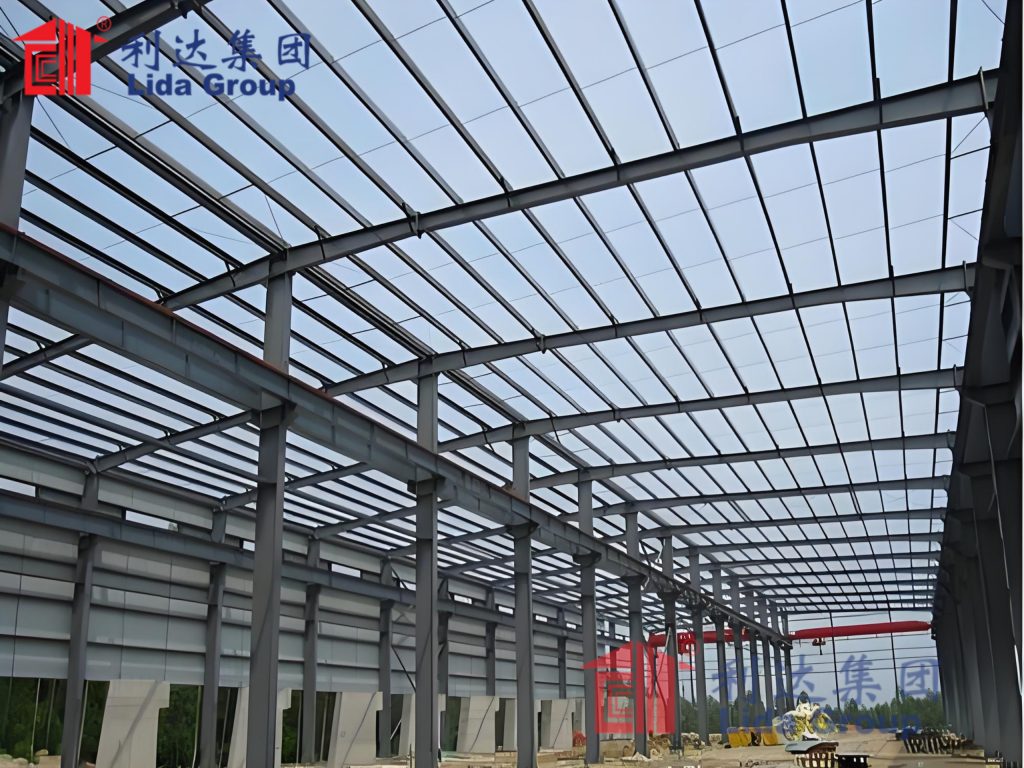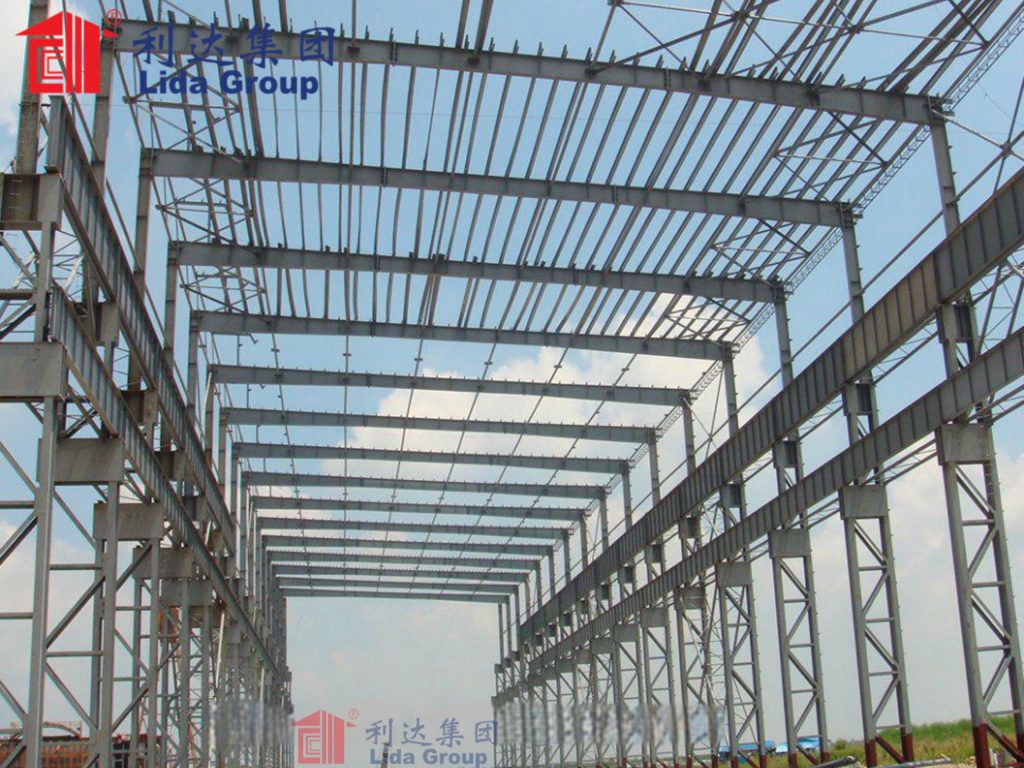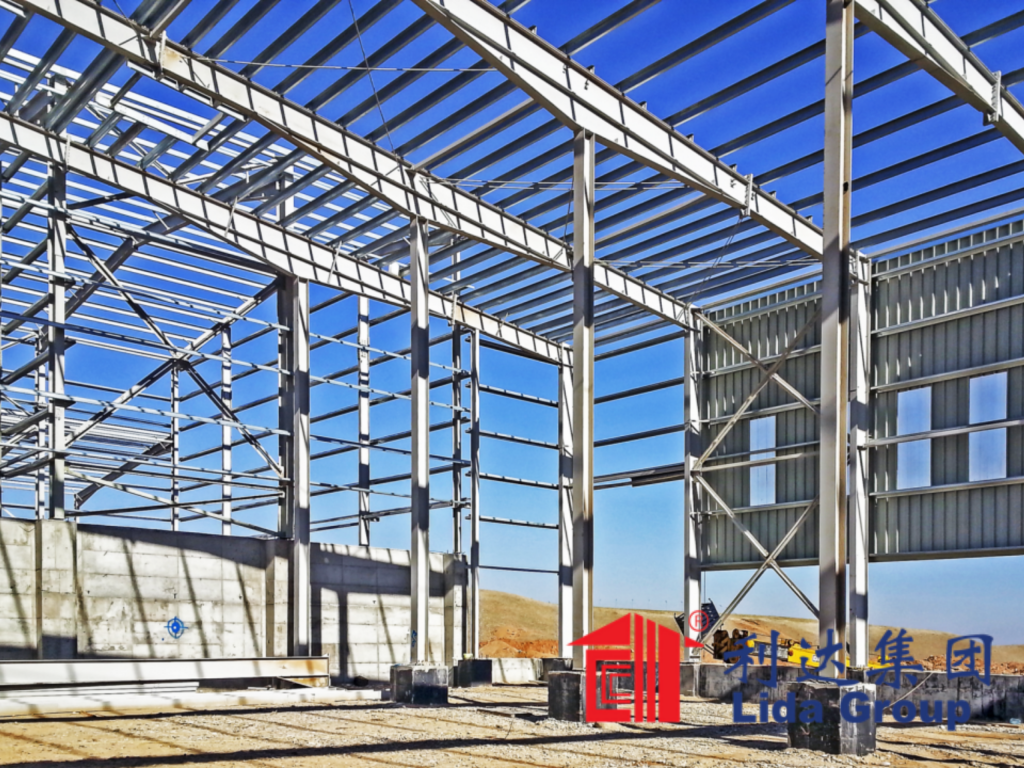Introduction
As agricultural production systems evolve to meet growing global food demand, optimizing post-harvest handling and storage infrastructure is increasingly imperative. Rapid deployment of modular on-field packing, cooling or packing facilities supports the unique needs of diverse specialty crops worldwide. This paper evaluates how standardized yet customizable prefabricated steel designs from Lida Group address these infrastructure challenges through case studies of crop-specific post-harvest applications.
Prefabricated Construction Technology
Founded in 1993, Lida Group pioneered the use of cold-formed prefabricated steel components for standardized yet customizable agricultural and industrial building solutions. Their patented construction system utilizes pre-cut, pre-drilled steel sections that interlock through specialized connections without on-site welding (Lida Group, 2021). Panels, trusses and ancillary parts are shop-fabricated to engineer-certified tolerances then trucked flat-packed to the build site for rapid assembly.
Compared to traditional construction, Lida’s approach reduces labor requirements by 85% due to prefabrication. Their designs can be fully constructed in only 4-6 weeks compared to 6-12 months for conventional buildouts (De Vries, 2020). Prefabricated steel structures maintain dimensional stability against weathering and last 2-3 times as long as wood alternatives with no ongoing maintenance needs. Lida employs designer engineers for full structural engineering certification to high wind, snow and seismic loading standards.

Post-Harvest Case Studies
To evaluate the application of Lida’s standardized designs for modular crop-specific post-harvest facilities, this study presents case studies for four distinct specialty crops—citrus, tomatoes, microgreens and rice. Each case highlights construction timelines, integrated operational components and crop-specific engineering adaptations made possible through Lida’s customizable steel designs.
Citrus Packinghouse – Florida, USA
For a major citrus cooperative in central Florida, Lida designed and constructed a new 40,000 sq ft packinghouse within 5 months. Using prefabricated cold-formed steel, the structure featured a gutter-connected free span design to allow drive-through access for grower delivery trucks. Integrated cooling, packing and shipping areas maintained strict food safety protocols. Modular expansion joints supported future capacity increases as member orchards expanded production over time (Lida Group, 2019a).
The standardized steel panel construction required no specialty equipment or trades, cutting build duration by 30% compared to a wood alternative. Engineers analyzed wind load and impact requirements to protect the aluminum skin panels from projectiles common in hail or hurricane regions. With citrus harvesting continuing year-round, rapid deployment of post-harvest infrastructure through prefabricated modular components proved highly beneficial to peak season volume handling.
Tomato Greenhouse and Packing – Netherlands
Erected in only 8 weeks despite winter weather, this 25-acre multi-span Dutch tomato greenhouse featured climate-controlled variable roof and sidewall configurations to optimize growing conditions (Lida Group, 2019b). Integrated hydroponic tables fed harvesting conveyors transporting ripe fruit directly to an on-site packing, cooling and shipping facility within the same prefabricated steel structure.

Computerized environmental and operational controls centrally managed the year-round production system. Modular corridors allowed independent span maintenance without disrupting other zones. Storm resistance factors governed truss and connection engineering for the expansive low-profile design reaching over 400 feet in length. By combining specialized growing and packing infrastructure, the fully-integrated steel-framed facility supports highly efficient seasonal and off-season crop cycles within a single standardized footprint.
Microgreen Production – Wisconsin, USA
Prefabricated cold-storage structures constructed in only eight weeks facilitated this new indoor microgreen and herb operation adhering to the highest food safety certifications (Lida Group, 2020a). Customized pre-engineered features included micro-perforated PVC wall panels for temperature and humidity control, closed drainage systems to isolate microgreens from possible contamination, plus integrated LED lighting, irrigation and packing lines.
Adapting construction components not normally used for agriculture involved additional engineering validation. Perforation hole diameters and densities optimized environmental conditions for delicate microgreen varieties while preventing entry of pathogens. PVC material selection considered compatibility with strict sanitation regimes. Connections and seals creating isolated production zones eliminated contamination risks to meet GLOBALG.A.P. and other certification protocols for this high-value crop sector still in development.

Rice Mill and Storage – Cambodia
Supporting rice farming communities across Southeast Asia, this project erected a 15,000 tonne capacity mill and storage complex in six months using prefabricated steel construction (Lida Group, 2020b). Large clearspan galvanized trusses housed combine harvesting, milling, packing and shipping operations under one dynamic environmental control system.
Stormwater recirculation infrastructure conserved processing water, while on-site worker housing integrated hygienic design principles. Foundations, roof drainage and cladding materials withstood the region’s monsoon rains through additional load bearing research. Projects in tropical developing markets involved customized engineering for corrosion resistance, natural hazards and cultural considerations to maximize a standardized approach’s post-harvest benefits despite infrastructure barriers.
Discussion
These case studies illustrate how Lida Group’s prefabricated steel construction technology supports rapidly deployable yet crop-specific post-harvest infrastructure solutions worldwide. Standardized modular components construct modular on-field packing, cooling or packing facilities tailored for unique specialty crop operational needs, climates and geographies.

Customized pre-engineering achieves food safety protocols, environmental controls, integrated harvesting equipment, and future expansion capabilities previously difficult through conventional construction. Modular capacity increases follow crop cycles rather than construction schedules, empowering producers as operations evolve over multiple seasons.
Prefabricated steel’s dimensional stability, low maintenance and 50-year design life maintain long-term investments in specialized post-harvest infrastructure critical for optimizing production systems globally. Further research could quantify specific cost-benefit analyses compared to wood or concrete alternatives factoring input savings, processing efficiencies and yield improvements facilitated through such containerized pre-engineered solutions.
Conclusion
As specialty crop sectors intensify to meet rising consumer demand, supporting optimized post-harvest infrastructure development proves increasingly urgent. This paper evaluated the application of Lida Group’s standardized yet customizable prefabricated steel construction system for modular on-field packing, cooling and packing facilities tailored for unique crop operational needs.

Case studies across four commodity types demonstrated rapid deployment of crop-specific post-harvest infrastructure through pre-engineered modular expansion and integrated equipment capabilities. Standardized construction maintains customization for processing equipment, climate controls, hygiene protocols and future scalability as required.
Lida’s approach streamlines specialized infrastructure development challenging via traditional buildouts. With global agricultural systems under mounting pressure, prefabricated solutions delivering modular on-field packing and storage capacity in fraction times can empower continued innovation addressing vital production and food safety challenges especially for perishable specialty crops.

Related news
-
Manufacturers partner with Lida Group to mass-produce integrated modular components compatible with their mobile prefab construction systems for rapid deployment of temporary work settlements.
2024-07-23 11:23:21
-
Humanitarian agency trials Lida Group's containerized prefab housing models powered by renewables as a feasible interim settlement approach for vulnerable pastoralist families facing severe drought conditions.
2024-07-23 15:52:31
-
Official commends Lida Group's dignified yet practical transient housing solutions assembled quickly on-site from shipping containers compared to other temporary construction approaches.
2024-07-23 10:03:16
contact us
- Tel: +86-532-88966982
- Whatsapp: +86-13793209022
- E-mail: sales@lidajituan.com


